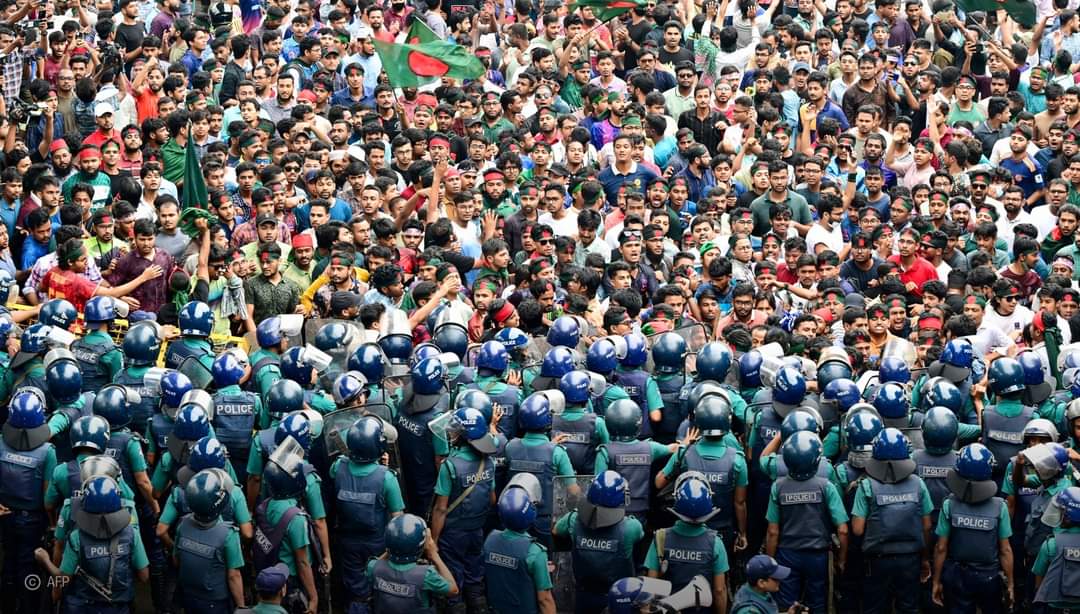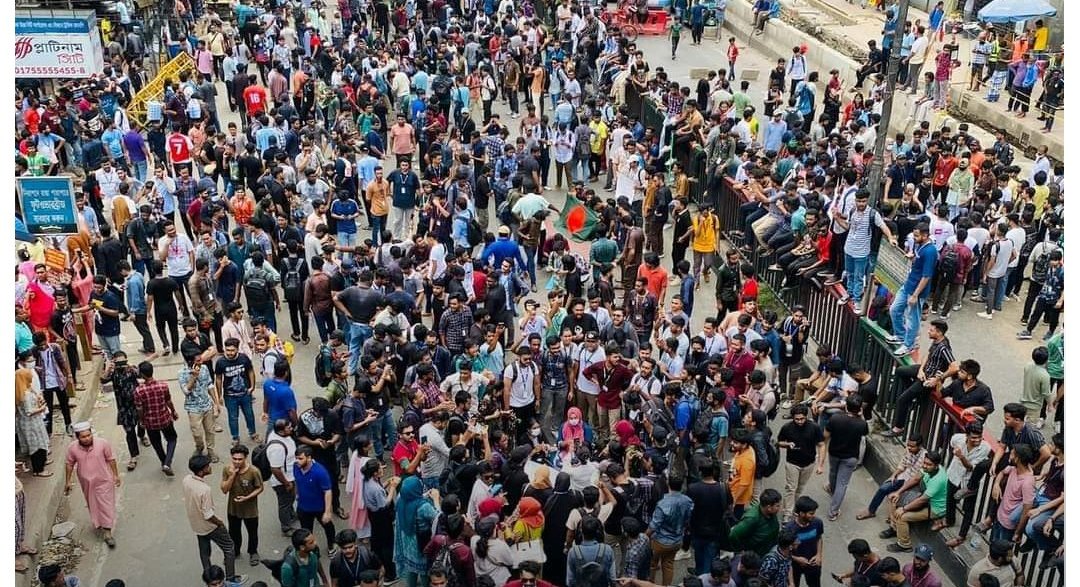by Babra Wani
SRINAGAR: Hundreds of Kashmir families, whose wards are enrolled in scores of medical schools in Bangladesh, are worried as the South Asian country is witnessing unprecedented student unrest. Though the students are safe, the tensions are mounting as Bangladesh dominates the TV screens in South Asia.

So far 39 people, mostly students, have been reported dead in the unrest as most of Bangladesh is witnessing pitched battles between the armed forces and the angry students. The country ordered Army out on Thursday but the situation is still tense. The country is reporting a “near total” internet shutdown as the Sheikh Hasina government’s crackdown goes to the next level.
Amidst this chaos, Kashmiri students studying in Bangladesh are safe but deeply concerned, along with their families back in Kashmir. They are urgently appealing for a clear decision regarding the status of foreign students in the country.
“The core issue is the authorities’ announcement of a quota system for the children and grandchildren of war veterans, which has sparked public outrage. But it’s not just about the reservation,” a student from Srinagar, who has been pursuing a medical degree at East West Medical College in Dhaka for the past four years, said on the condition of anonymity. “The use of the term Razakaar, considered highly offensive in Bangladesh, has fueled the protests. This term, associated with betrayal during the 1971 independence war, has led to violent clashes over the past few days, with the student league called Chatra League supporting the police and the government.”
In 1971 when the erstwhile East Pakistan fought its war for liberation and secession from Pakistan, the society was completely divided. Those who were against the secession were called Razakaars. This division still dominates the political landscape of the country and was the key factor that led to a series of hangings in the country.
“Although foreign students, including us, are safe, local students are suffering,” the Srinagar medical student said. “We were instructed to either vacate our university premises or stay indoors in our dorms. The protests have left everyone anxious. I live near a city that was literally on fire today; you can see the situation on X (formerly Twitter).”

Despite the suspension of mobile internet services in Bangladesh Wednesday night, some places still have working WiFi, allowing foreign students to contact their families. “I managed to contact my family, but many students don’t have internet access, making it difficult to reach my fellow Kashmiri students in other universities. Some friends called me on my local Bengali number, asking me to inform their families of their safety,” the student said. “We aren’t exactly trapped, but there’s no official guidance for us. We received a notification stating that colleges are shut down indefinitely, with no timeline provided. We are uncertain whether to stay or return home.”
The Ministry of External Affairs Ministry on Thursday issued an advisory asking the students from India to stay restricted to their places of living. They also issued the cell phones and WhatsApp numbers of various MEA officials who are deployed in Dhaka and elsewhere in the country. There are nearly 70,000 Indian citizens in Bangladesh, media reports suggest.
“I am sure every parent with a child in Bangladesh is concerned,” the Srinagar student added. “We need an authoritative decision regarding foreign students because we are in a different country, far from home, and need proper care. One of my friends contacted the Indian High Commission, and they said it was up to him to decide what to do. This issue needs immediate attention because we don’t know how long this situation will last. Female students, in particular, are in a more dangerous situation and need proper crisis management.”
Kashmiri students have taken to social media to update their families and friends. “We are fine and hopeful this issue will be resolved soon,” a Kashmiri student in Bangladesh posted on Instagram.
Even though the students are safe, the horrifying events dominating the TV screens have left their families back home worried.
Parents in Kashmir are collectively praying for their children’s safety. Mansoor Ahmad, whose son is pursuing an MBBS in Bangladesh, expressed hope for the well-being of all Kashmiri students. “We pray for the safety of every child and appeal to the government to ensure our children remain safe.”
Samit, whose younger sister is studying in Bangladesh, managed to contact her on Thursday morning. “She said she and her friends are very scared. I am requesting the government to ensure the security of all Kashmiri students.”
The protests began last month after the High Court reinstated a quota system for government positions, overturning Prime Minister Sheikh Hasina’s 2018 decision to abolish it. This system reserves 30 per cent of positions for family members of freedom fighters from the 1971 independence struggle against Pakistan.
The Supreme Court has halted the High Court judgment pending a hearing on August 7. The protests intensified when Hasina refused to meet the students’ demands, citing legal processes and referring to the demonstrators as razakars, a term for traitors during the independence war.
Fifty-six per cent of government jobs are reserved under the current quota system, with 30 being for the descendants of the 1971 Liberation War freedom fighters, 10 per cent for backward administrative districts, 10 per cent for women, five per cent for ethnic minority groups and one per cent for the handicapped people.
Every year some 3,000 government jobs open up to nearly 400,000 graduates in Bangladesh pushing unemployment to new levels. In 2018, a serious agitation on reservations forced the government to abolish the reservation system. In a nation of 17 crore people, more than three crore are not in work or education.
(The feature photograph used in this report is not linked to current happenings. It belongs to Covid19 days.)


